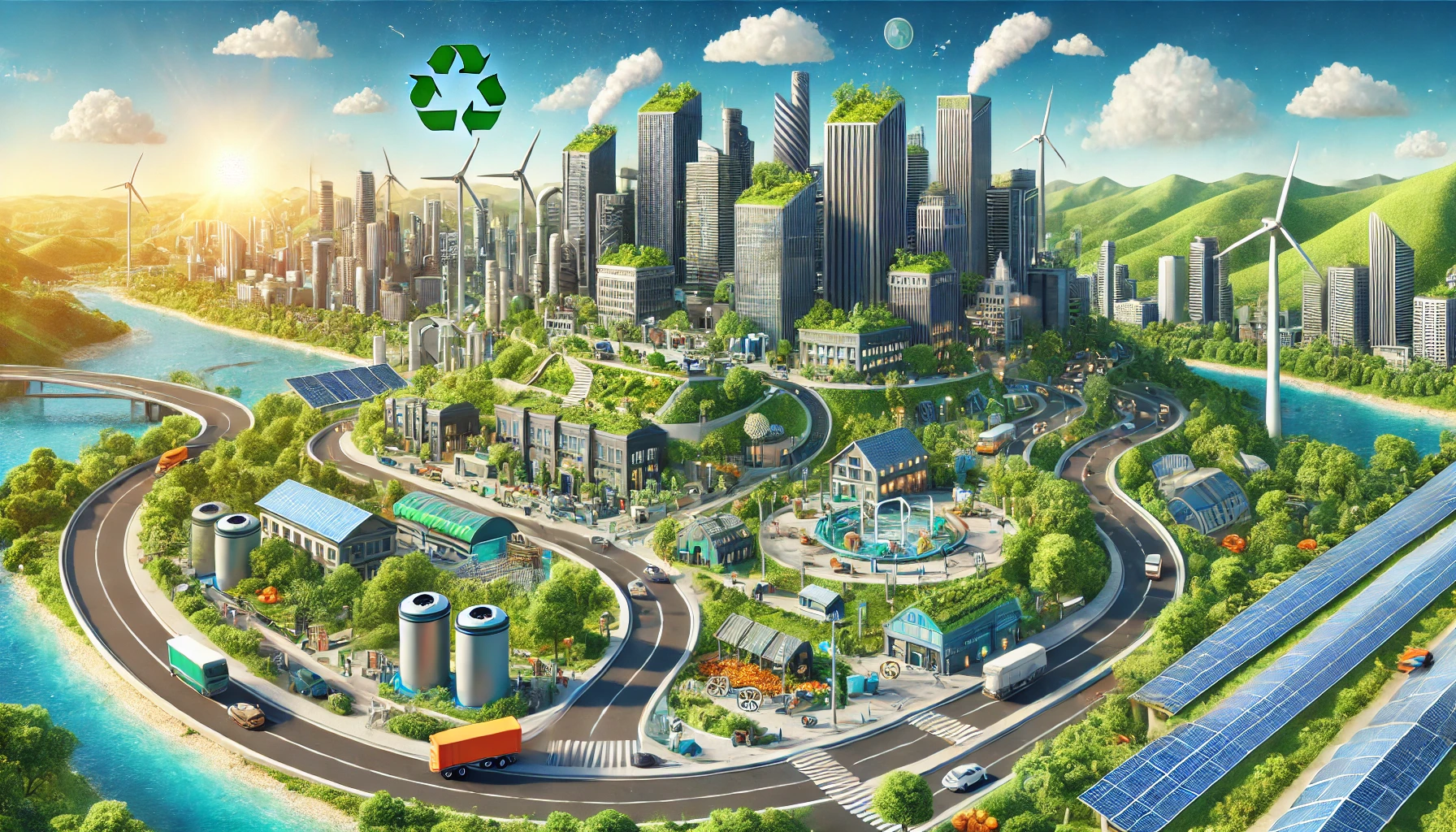Revolutionizing Urban Waste: Circular Economy Solutions for a Sustainable Future
The study highlights inefficiencies in construction and demolition (C&D) waste management in urban areas and advocates for circular economy principles, advanced technologies, and stakeholder collaboration to promote sustainability. It emphasizes regulatory reforms, public awareness, and economic opportunities to transform waste into a resource for a greener urban future.

Researchers from institutions specializing in environmental engineering and urban sustainability have undertaken a detailed study on construction and demolition (C&D) waste management, focusing on urban centers where challenges in handling this type of waste are most pronounced. Their investigation employs cutting-edge tools such as geospatial analysis, artificial intelligence (AI), and policy evaluation to uncover inefficiencies in current practices. These inefficiencies, including poor segregation, low recycling rates, and limited reuse of materials, result in significant environmental impacts like land degradation, resource depletion, and greenhouse gas emissions. Urbanization and rapid construction activities further strain waste management systems, exacerbating these problems.
Circular Economy Principles for Sustainability
A major emphasis of the study is the adoption of circular economy principles to transform the management of C&D waste. By focusing on reusing materials, improving recycling processes, and designing buildings for sustainability throughout their lifecycle, circular practices can drastically reduce waste and promote resource efficiency. The research points to successful examples from cities that have embraced these principles, achieving measurable environmental and economic benefits. Technological advancements, particularly AI and machine learning, are highlighted as vital enablers of circularity. These tools can predict waste generation patterns, monitor recycling processes in real-time, and provide data-driven insights for optimizing resource allocation.
The Role of Stakeholders in Waste Management
Collaboration among stakeholders is a central theme of the study. Policymakers, construction companies, and waste management firms all play critical roles in improving waste management practices. The study calls for comprehensive regulatory reforms, including stricter enforcement of laws governing waste segregation and recycling. Incentives such as tax benefits and subsidies for adopting sustainable practices are proposed to motivate stakeholders to invest in green technologies. The construction industry is urged to incorporate green building practices like using recycled materials and designing for deconstruction, while waste management companies are encouraged to upgrade their infrastructure and capabilities to handle diverse types of waste. Public-private partnerships are identified as a powerful mechanism to drive innovation and funding for sustainable waste management projects.
Raising Public Awareness and Engagement
The research highlights the importance of public awareness in fostering a culture of sustainability. Many citizens remain unaware of the environmental consequences of poor C&D waste management. To address this, the study advocates for educational campaigns and community engagement programs aimed at promoting responsible waste practices. By involving the public, these initiatives can create a collective push toward sustainability, making individuals and organizations more conscious of their role in reducing environmental impacts. The study also notes the potential of financial mechanisms like pay-as-you-throw systems to incentivize waste reduction and recycling at the individual level.
Economic Opportunities in Sustainable Waste Practices
Beyond environmental benefits, the study underscores the economic advantages of sustainable C&D waste management. Recycling industries can create jobs and drive innovation in material recovery technologies, offering a significant economic boost to urban areas. Moreover, reducing reliance on raw materials through effective recycling can lower construction costs, making sustainability a financially viable option for businesses. The researchers emphasize that aligning waste management practices with circular economy principles can transform waste from a liability into an asset, fostering a more sustainable and prosperous urban future.
Toward a Greener and Smarter Future
The study provides actionable recommendations for improving C&D waste management. Key proposals include integrating advanced digital tools for waste monitoring and optimization, increasing investments in innovative recycling technologies, and establishing robust regulatory frameworks that prioritize sustainability. These measures, the researchers argue, can drive a paradigm shift in urban waste management, moving from linear disposal systems to circular resource recovery models. By adopting these strategies, cities can significantly reduce their environmental footprint and contribute to global sustainability goals. The study serves as a call to action for all stakeholders policymakers, industries, and the public alike to embrace sustainable C&D waste management as an essential component of urban development strategies, ensuring a cleaner, greener, and smarter future for generations to come.
- FIRST PUBLISHED IN:
- Devdiscourse










